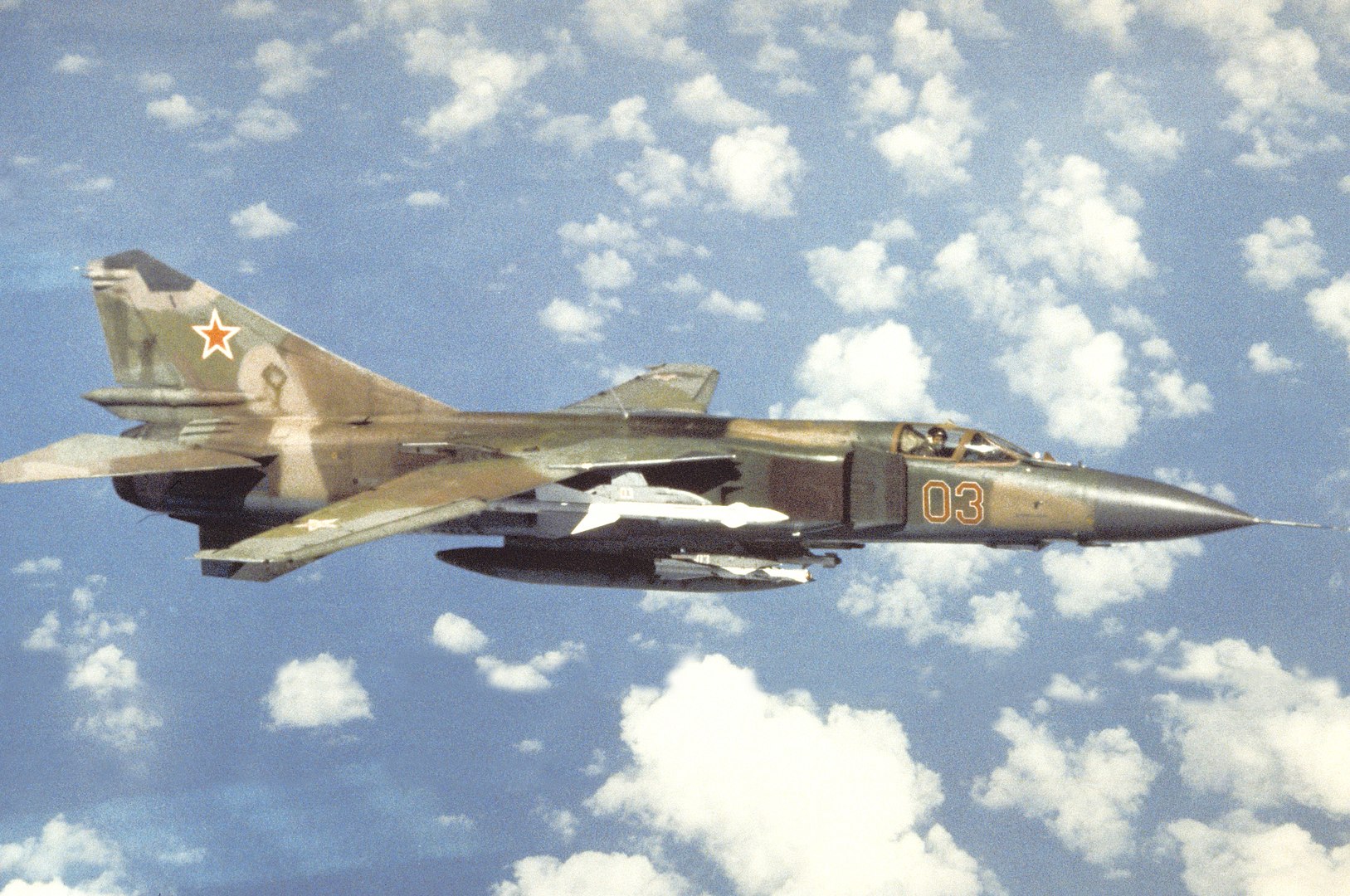Incident on the Baltic
23 October 2022
During the Cold War NATO’s jets would patrol the skies over the Baltic Sea, often at close proximity to Soviet Union jets like the MIG above.
But the following incident, although in the right place, was from a different time.
It’s 2018 and I’m on the Baltic Sea, an area of Soviet Union control during the Cold War from 1947 to 1991. Night has fallen and the passengers of our vessel have been assembled to hear three historians speak of the Cold War. I am on a cruise ship with my wife, on the Viking Line. At least 80% of the passengers are American.
We have just sailed out of Russia, having spent two nights there. Because of my work in cyber security I had not been allowed to take my normal work-issued mobile phone into Russia and had instead been issued with a ‘burner phone’, just for this part of the trip. I had stored my normal phone in a secure location within our cabin, but within multiple signed envelopes with a hair sticky-taped down (to ensure that no crew members were in fact Russian assets and had attempted to find my phone). Overkill? Probably. Suffice it say I was feeling more than a little James Bond-like by this time, keenly aware of the Cold War tensions that had now morphed into a different kind of standoff.
As we sailed out of Russian waters, the three historians that were a part of the cruise had come together to take part in a question and answer forum on the Cold War. There were probably around 200 people in the theatre, mostly Americans. I sat down near the front.
In 2018 we had already had around two years of then President Trump’s rhetoric on disbanding NATO, and America First. As an Australian, I sensed that the arrangements that had been in place for all of my life were changing. I was genuinely interested in what this would mean. My hand went up, and I was given the first question.
“Firstly, I would like to note that, as an Australian, I have lived my entire life under the American nuclear umbrella”. I turned around and said to the audience: “thank you”.
“However”, I continued, “the statements being made by President Trump suggest to me that any countries in alliance with America now, like Australia, can no longer rely on the support of America as we have in the past. Am I reading this right – because we are grateful for the nuclear umbrella, but the things that are being said make us wonder if we should continue to rely on these arrangements”.
One of the historians gave an answer. It was along the lines of ‘don’t listen to the rhetoric, look at the actual arrangements, actual policy positions, and the depth of engagement at other levels of government and the military’. Fair enough.
The next question came from an American. He seemed a little agitated: “my question, my question is this – why should America care about our relationship with Australia, shouldn’t we spend more time on our relationship with Russia”. A collective intake of breath all around me. A stunned silence, finally punctuated by a fairly bland answer from the experts out the front. But of course the question wasn’t really a question at all, it was a statement about the new Trumpian world order: America First, Make America Great Again, old relationships don’t matter, America needs only a transactional view of the world – what’s in it for us at any moment in time.
The questions and answers continued for about another 45 minutes, focusing more now on the safer territory of the Cold War. However, a pall had settled over the proceedings: a challenge to old friendships had gone unanswered, a new American order had been advanced and none were sure what to do or say next. The meeting concluded. What happened next will stay with me forever.
As I got up to leave, turning around to walk through the theatre to the rear exit I found myself suddenly ten-deep in concentric circles of Americans, some with tears in their eyes, all wanting to shake my hand, reassuring me that “we love Aussies”, “we haven’t walked away from you”, “we are your friends”. My own eyes are tearing up at the memory as I write this. It took me over ten minutes to leave, through the handshakes and well-wishing.
As it is within every society, there are differing views and opinions. This small incident on the Baltic reconfirmed to me that it is too easy to get caught up in the rhetoric of nationalism and forget that, at heart, we are all human. We are at our best, all of us, when we allow our shared humanity to check our worst instincts. Friendships, some forged at great cost, are important. On that day, in that moment, the overwhelming majority of Americans on the ship took the time to reconfirm that.
Surely one of the better international incidents on the Baltic.
Image attribution: DoD photo – http://www.dodmedia.osd.mil/; VIRIN: DN-ST-89-08431, Public Domain, https://commons.wikimedia.org/w/index.php?curid=5113744
More stories of history and travel






















Leave A Comment